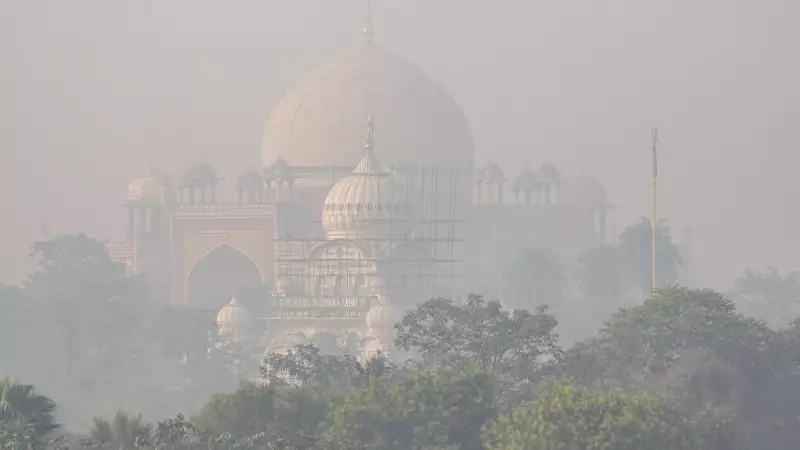
Delhi residents continue to breathe dangerously polluted air as the national capital recorded an Air Quality Index (AQI) of 359 on Friday, maintaining its position in the 'very poor' category. Despite some marginal improvement from previous days, the toxic haze persists across the city, creating serious health concerns for millions of inhabitants.
Current Air Quality Situation
The overall AQI reading of 359 places Delhi firmly in the 'very poor' classification according to the Central Pollution Control Board standards. The concentration of PM2.5, the most hazardous pollutant, remained significantly above safe limits, posing severe respiratory and cardiovascular risks to the population. Meteorological conditions have provided only slight relief, with wind patterns offering minimal dispersion of the accumulated pollutants.
Monitoring stations across different areas of Delhi showed varying levels of pollution, with some regions experiencing even worse conditions than the city's average. The early morning hours witnessed the highest pollution concentrations, as is typical during winter months when temperature inversions trap pollutants closer to the ground.
Factors Contributing to Persistent Pollution
Multiple factors continue to contribute to Delhi's deteriorating air quality. Vehicle emissions remain a primary contributor, with the city's massive vehicular population releasing substantial pollutants daily. Industrial activities in and around the capital, along with construction dust, add significantly to the particulate matter load in the atmosphere.
Although farm fire incidents have reduced compared to previous weeks, their lingering effect combined with local pollution sources maintains the toxic cocktail in Delhi's air. Weather conditions, including low wind speed and dropping temperatures, prevent effective dispersion of pollutants, allowing them to accumulate over the city.
Health Impacts and Advisory
Medical experts have issued serious health warnings given the persistent 'very poor' air quality. Exposure to such polluted air can cause immediate health problems including breathing difficulties, throat irritation, and coughing. Long-term exposure increases the risk of developing chronic respiratory diseases, heart conditions, and other serious health complications.
Vulnerable groups including children, elderly citizens, and individuals with pre-existing respiratory or cardiac conditions are particularly at risk. Doctors recommend minimizing outdoor activities, especially during early morning and late evening hours when pollution levels peak. Wearing N95 or equivalent masks outdoors provides essential protection against fine particulate matter.
Authorities continue to monitor the situation closely, with the Commission for Air Quality Management reviewing the implementation of existing pollution control measures. The marginal improvement observed offers little comfort to Delhiites who continue to face hazardous air conditions day after day.





